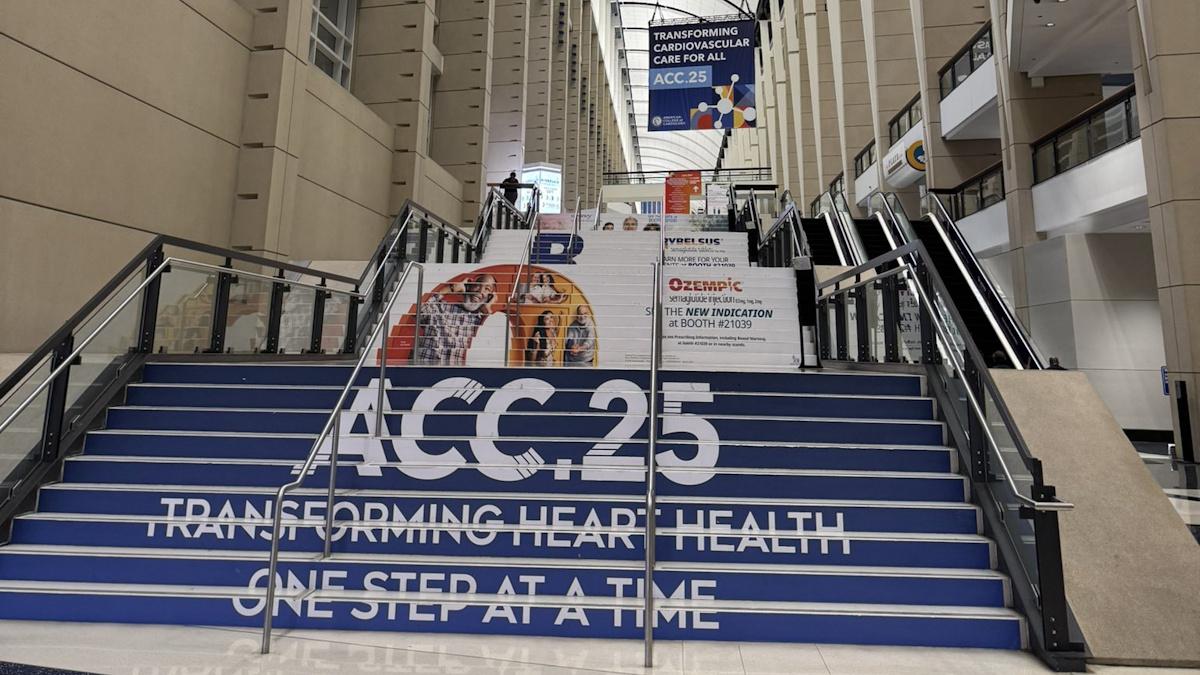AHA: One dose of Lilly’s siRNA drug cuts Lp(a) for a year

A first-in-human trial of Eli Lilly’s experimental RNA interference drug lepodisiran has shown that just one dose reduced lipoprotein(a) – a risk factor for cardiovascular disease – by up to 94%, with reductions lasting almost a year.
The study, reported at the AHA congress over the weekend, supports the potential of lepodisiran as “a once-a-year injection similar to a vaccine for people with high Lp(a) levels,” said lead investigator Steve Nissen of the Cleveland Clinic.
Elevated Lp(a) is recognised as an independent genetic risk factor for coronary artery disease, heart attack, stroke, peripheral arterial disease, and aortic stenosis, and at the moment there are no approved drugs to reduce levels of the lipoprotein.
It is estimated that about 50% of atherosclerotic cardiovascular disease is not driven by LDL-cholesterol – the target of most lipid-lowering drugs, including statins and PCSK9 inhibitors – and that the majority of those cases are associated with Lp(a).
Lepodisiran was licensed by Lilly in 2018 from Dicerna, ahead of its $3.3 billion takeover by Novo Nordisk, and is designed to lower Lp(a) by blocking the production in the liver of a key protein component of the Lp(a) particle.
“If further trials show that this medication […] is safe and can reduce heart attacks and strokes, it would be good news for patients because it eliminates a risk factor we’ve been unable to treat,” said Nissen, who is also involved in an ongoing phase 2 trial of the drug.
A number of other Lp(a) drugs are in the industry pipeline, including Novartis’ antisense-based therapy pelacarsen and Amgen’s RNAi therapy olpasiran, which are both already in phase 3 cardiovascular outcomes studies.
Pelacarsen requires monthly injections, while olpasiran is being evaluated as a three-monthly injection, so lepodisiran could have a dosing frequency advantage if it makes it through later-stage clinical testing and onto the market.
Silence Therapeutics, meanwhile, has an RNAI-based Lp(a) called zerlasiran in phase 2 testing that has shown it can reduce levels of the lipoprotein for up to five months with a single dose.
In the lepodisiran study, 48 volunteers with abnormal levels of Lp(a), averaging 110 nmol/L, were given either a single subcutaneous injection of the drug at a range of doses (36) or a placebo (12).
With the highest (608 mg) dose of lepodisiran, blood levels of Lp(a) declined rapidly and were undetectable by day 29, remaining unmeasurable from days 29 to 281 and then rising slightly, with a median reduction of Lp(a) levels at 94% below baseline at 48 weeks.
There was a dose-response relationship, with patients on a 304 mg dose seeing a 75% reduction at 48 weeks, and on the whole the drug was well-tolerated, with some people experiencing injection site reactions and minor and transient side effects like stuffy nose or headache.
There were “brief” elevations in liver enzymes in three cases, but those were not considered to be a concern, according to the investigators.
The ongoing phase 2 trial is testing lepodisiran in people with both high levels of Lp(a) and a high risk of early heart attack or stroke.
“For now, if you have a strong family history of early heart disease, you should insist on having your Lp(a) measured,” remarked Nissen.
“As these therapies become available, you can seek treatment," he added. “Our priority should be finding effective treatment options for people with high Lp(a), so their risk of cardiovascular disease can be reduced.”












